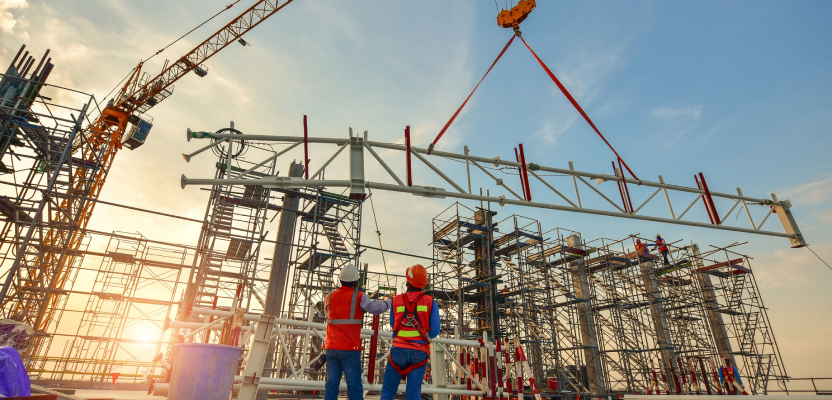Nigeria, with its vast coastline stretching over 850 kilometers and a strategic location along key international trade routes, is uniquely positioned to become a major player in global marine logistics. However, the foundation for realizing this potential lies in robust and efficient port infrastructure. Ports are not just gateways for goods; they are critical hubs that enable economic growth, regional integration, and sustainable development.
The Role of Ports in Marine Logistics
Ports are the lifeblood of marine logistics, acting as the starting and ending points for maritime trade. For a country like Nigeria, which depends heavily on imports and exports, ports facilitate the movement of goods, raw materials, and finished products that drive key sectors like agriculture, manufacturing, and oil and gas. Efficient port infrastructure ensures the smooth flow of cargo, minimizes delays, and reduces costs for businesses.
In marine logistics, the importance of ports cannot be overstated. Ports provide:
- Cargo Handling Facilities: Modern equipment and warehouses are essential for loading, unloading, and storing goods.
- Connectivity: Ports link sea transport with road, rail, and inland waterway networks for seamless cargo movement.
- Customs and Regulatory Operations: Ports serve as checkpoints for compliance with trade laws and security protocols.
- Support Services: Ship maintenance, refueling, and crew support services rely on well-equipped ports.
Nigeria’s Current Port Infrastructure
Nigeria’s port infrastructure comprises key facilities like the Apapa and Tin Can Island Ports in Lagos, the Onne Port in Rivers State, and the Calabar and Warri Ports. These ports handle a significant portion of West Africa’s maritime traffic. However, many of them face challenges such as congestion, inadequate facilities, and inefficiencies in cargo handling.
For instance, the Apapa Port, Nigeria’s busiest, often experiences severe traffic gridlock due to poor access roads and outdated infrastructure. These inefficiencies result in delays, increased costs for businesses, and reduced competitiveness in international trade.
The Economic Importance of Improving Port Infrastructure
Efficient port infrastructure enhances the ease of doing business by reducing turnaround time for ships and goods. This, in turn, attracts foreign investment and positions Nigeria as a preferred hub for regional and international trade. Sectors like agriculture and oil and gas depend on ports for the export of products and the import of equipment. Improved ports reduce the logistical bottlenecks that hamper the growth of these industries.
Upgrading port infrastructure generates employment opportunities across multiple sectors, including construction, logistics, and warehousing. Ports also stimulate job creation in related industries, such as manufacturing and transportation. Well-functioning ports allow Nigeria to compete with neighboring countries like Ghana and Côte d’Ivoire, which are improving their port facilities to attract more shipping traffic.
Addressing Challenges in Nigeria’s Ports
To unlock the full potential of marine logistics, Nigeria must address the following issues:
- Modernization of Infrastructure
Ports need investment in state-of-the-art cranes, automated cargo systems, and expanded berths to handle larger vessels and higher cargo volumes. - Access Road and Rail Connectivity
Improved access roads and dedicated rail links to ports can reduce congestion and ensure faster movement of goods. The recent revival of the Lagos-Ibadan railway is a step in the right direction. - Digitalization of Operations
Implementing digital platforms for customs clearance, cargo tracking, and port management can minimize delays and enhance transparency. - Public-Private Partnerships (PPPs)
Collaboration between the government and private investors can provide the funding and expertise needed to upgrade port facilities. Successful PPPs, like the development of the Lekki Deep Sea Port, demonstrate the potential for similar projects across the country. - Sustainability Initiatives
Adopting eco-friendly practices in port operations, such as using renewable energy and reducing waste, ensures long-term viability and compliance with global environmental standards.
Port infrastructure is the backbone of marine logistics, and its importance to Nigeria’s economic growth cannot be overemphasized. With strategic investments, policy reforms, and innovative solutions, Nigeria can transform its ports into world-class facilities that drive trade, attract investment, and create jobs. As Africa’s largest economy, the development of Nigeria’s port infrastructure is not just a national imperative; it is a continental opportunity. By modernizing its ports, Nigeria can cement its position as a leading maritime logistics hub and unlock the immense potential of its blue economy.







Comments are closed